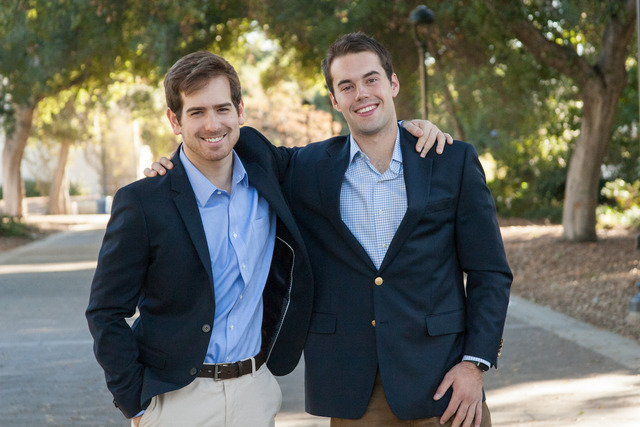The Local newsletter is your free, daily guide to life in Colorado. For locals, by locals.
Nearly two years ago, Denverite Daniel Greenfeld received a call from a friend who had obsessive-compulsive disorder. Stephen Smith was tired of spending nine to 10 hours a day in his room, consumed by fear. His anxiety was disrupting his life, but he refused to succumb to his panic. He had an idea for a possible solution—but needed Greenfeld’s help.
This week, that idea debuted as an iPhone app called nOCD, which provides support for those facing OCD and uses exposure and response prevention (ERP) therapy to combat their symptoms. ERP involves seeing what would happen when you’re exposed to your fears (for an individual with OCD, that might mean imagining contracting a life-threatening disease) and then actively choosing not to act in a compulsive manner in response (washing your hands, for instance).

It may sound counterintuitive to reduce your anxiety by triggering it, but ERP has been shown to help decrease compulsions in people with OCD. However, it’s difficult to carry out some of the tasks ERP requires when you don’t have a therapist to provide encouragement or analysis. That’s where nOCD comes in. The app allows you to track your episodes by date, location, trigger, and level of anxiety and set up a calendar for practice sessions, during which you train yourself to react appropriately to stressful situations. It’s then easier for those with OCD to better understand their fight-or-flight responses and for therapists to help those clients solve their problems more effectively.
“There is life that people are missing out on,” Greenfeld says. “We realized we could create a tool that essentially bridges the gap between what they’re doing now and the potential; the space that fills that gap is life that they get back.”
Although nOCD is new, it’s already garnered some major fans, including therapists across the country, OCD specialists (three now serve as an advisory board for the app), and investors such as Glen Tullman, the former CEO of medical records giant Allscripts and founder of diabetes-focused startup Livongo Health. That boosts the likelihood that users will pay $4.99 for a 60-day subscription; after the first two months, they can renew it on a monthly basis for $14.99 or annually for $99. Greenfeld says his team is working on a free web page where therapists can access their clients’ data, as well as an Android version of the app, ensuring that nOCD will be there for those who need it.
Follow editorial assistant Mary Clare Fischer on Twitter at @mc_fischer.








